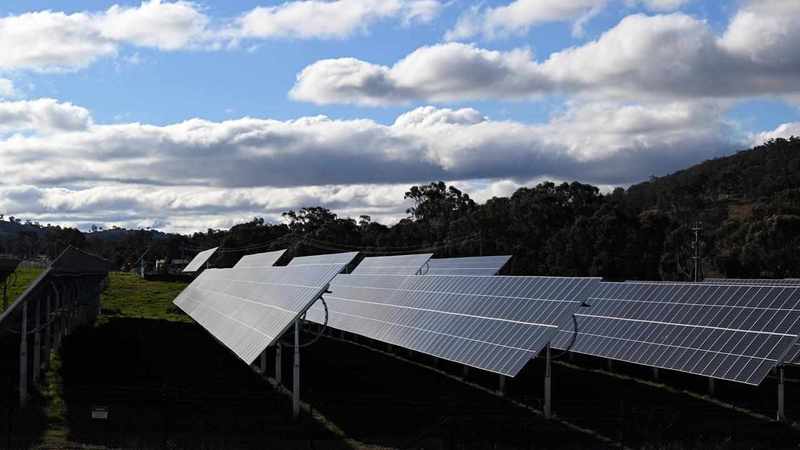An electricity and gas boss has hosed down the opposition's plan to replace coal-fired power stations with nuclear reactors to keep the nation's lights on.
Gunning for nuclear power was like "looking for unicorns in the garden", Alinta Energy chief executive Jeff Dimery told the National Press Club in Canberra on Wednesday.
"Nuclear really is a political question ... it's not legislated, it's not legal at this point," he explained.
"You could imagine our shareholder (Hong Kong billionaire Henry Cheng's investment firm) and our board wouldn't be too impressed if we're sitting around contemplating building power stations that are not legal."
He dismissed the idea of Australia using the company's LaTrobe Valley site or any other coal heartland to build nuclear reactors.
"It wouldn't be a great use of our time," he said, and urged the nation to "keep ploughing on with what we know and what we've got."
Mr Dimery also sounded a warning about the rising cost of energy for households and businesses from an increasingly low-carbon system.
"Australians will have to pay more for energy in the future," he said.
Replacing one coal-fired power plant in Victoria with hydro and offshore wind would cost more than $10 billion, which was $2 billion more than two years ago, he said.
Estimates of $850 billion needed over the next 10 years to revamp the entire grid would come from consumers one way or another, he said.
Whether through taxes, network costs, or the up-front investment in an electric car, household battery and rooftop solar, everyone will pay more for electricity, he said.

He said Alinta was not making "super profits" by price-gouging customers as critics claim, as profit margins are slim.
Amid a cost-of-living crisis, the company was scoping whether customers with rooftop solar and batteries could transfer or trade a portion of their output to family members, he said.
Other options include inviting retail customers to be co-investors in wind farms, providing itemised bills that show what's being spent on heating and cooling and refrigeration, and suggesting replacements that could be funded by energy savings, he said.
Replacing an energy and industrial system based mainly on fossil fuels with one built on renewables was challenging, Mr Dimery said.
"We have a glut of daytime rooftop solar energy, at the same time as 95 per cent of all large-scale renewables are getting curtailed - basically switched off - in some hours on high rooftop solar days."
Meanwhile, developers were pulling back on commitments to build large-scale renewables because they did not want to lock in high prices that may not be recouped, he said.
More gas plants, pumped hydro and offshore wind - supported by batteries - must be developed in partnership with households and governments, he said.
The electricity generator and retailer supplies more than one million homes and has considered a bid for Origin Energy’s Eraring coal plant in NSW to keep it running beyond its intended 2025 retirement.
Mr Dimery said Alinta's Loy Yang B would likely be the last coal power station to close in Australia although a reported 2047 date referred to the end of its "design life" not its closure.
However, the Australian Energy Market Operator's modelling on coal exiting the market by 2032 was "premature", he added.
"We will continue to generate from coal-fired power stations for as long as the market continues to need that supply."









